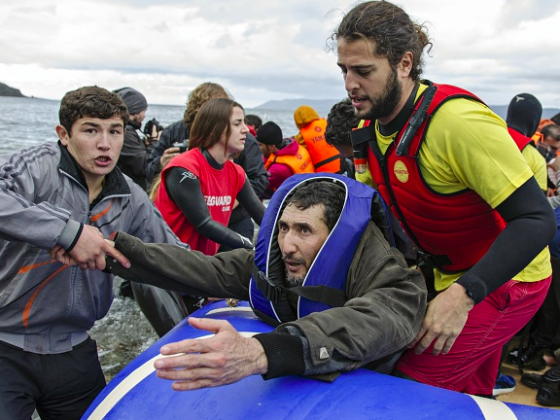LESBOS, Greece — Spending the autumn on the beaches of this Greek island may not sound that different from partying in Ibiza or lounging on the sand in Barcelona, where Oscar Camps normally runs the Proactiva lifeguarding company. But here his job is a far cry from running after tipsy holidaymakers.
“It was because of the children dying in the water. It’s our profession. I couldn’t understand why the children were dying so close to the beach and no one was saving them,” says Camps, 51.
